100 years of evolution: Innovation, inclusivity and a global lens contribute to student success
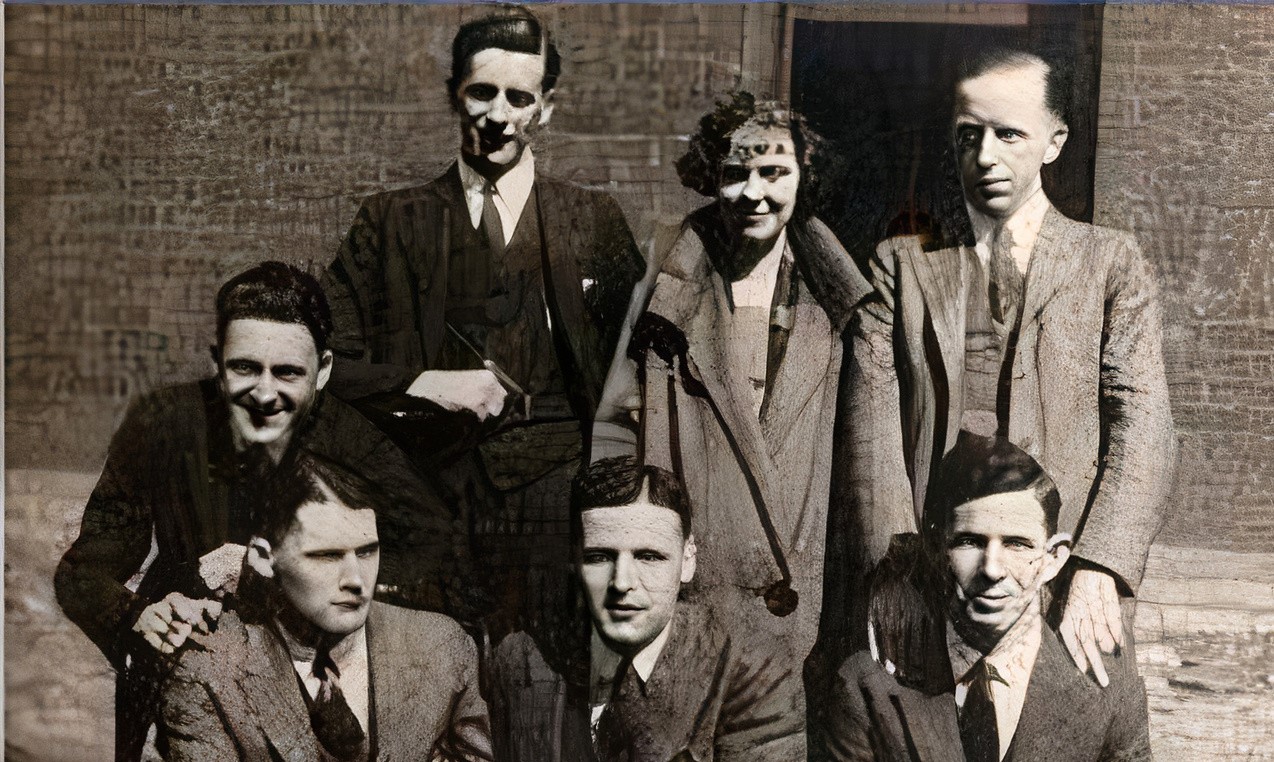
On the sunny day of June 6, 1924, the first seven graduates of the University of Toronto’s undergraduate business program now known as Rotman Commerce walked across the stage at Convocation Hall and received their diplomas.
One of several undergraduate business/management options at U of T, the program at the St. George campus has never stopped growing and evolving to keep pace with change. From 1924 to the present day, the world has changed almost beyond recognition. Not only have the realms of technology, finance and education evolved over the century, but student aspirations have also shaped what a commerce program should deliver.
Program leadership has responded in numerous ways, including frequent curriculum updates, offering career advising in a widening variety of industries, increasing accessibility options, and organizing opportunities to travel the world through summer courses and case competitions.
Joel Amernic (Professor, Accounting, Rotman School of Management)“Since I joined the full-time faculty in 1973 there has, of course, been enormous change in both the commerce curriculum and the scale of the program. From the era of hand-written ledgers to today’s ChatGPT, the impact of technology has been absolutely fascinating.”
Broadening of career opportunities
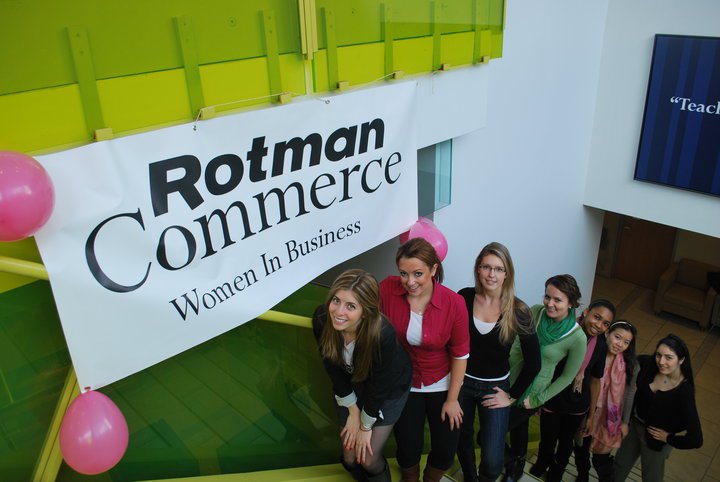
As far back as 1927, the Commerce program had quickly become the largest course in the Arts Department, growing from seven graduates to nearly 100 in just four years. This was the beginning of a century of growth. Student demand fueled the need for additional ways to connect graduates to employment opportunities. The program’s support for a wide variety of career paths has expanded greatly throughout the years, providing guidance far outside of the program’s initial financial and accounting focuses.
A significant career fair, initiated by the Commerce Students’ Associated in 1977, opened doors for students to plan their next career moves with the help of industry professionals. In 1980, ComGroup Consultants was launched with the help of Professor George Leonidas, then director of the Commerce program. Though a university-wide organization, the firm gave students the opportunity to gain experience while providing consulting services to the small business community. ComGroup Consultants was a precursor to the present-day consulting group Consult for Impact.
Entrepreneurship has also grown in importance in recent years, with Launch Your Big Idea. Founded in 2018, this student pitch competition supports budding entrepreneurs in gaining the necessary training and resources to prepare for startup success. The program offers a chance to pitch an idea, win seed funding and connect with potential mentors. Several alumni of the program have gone on to launch successful startups.
The need for students to develop a core set of transferable skills for academic and career success has been addressed by the Centre for Professional Skills (CPS), launched in 2018. CPS works to embed professional skill development throughout the curriculum across all four years of the BCom degree, via teamwork initiatives embedded in key courses, workshops, online modules, writing and presentation coaching, and more, to support students in becoming engaging communicators and successful collaborators and leaders.
In 2023, a two-phase program was launched to help propel students into finance careers. The first phase is Finance Foundations, a summer program with the aim to help students become familiar with the world of finance, covering investment banking, private equity and more. Finance Accelerator, the second phase, coaching a smaller group of students in accessing the connections and information resources to advance in their careers.
Globalization
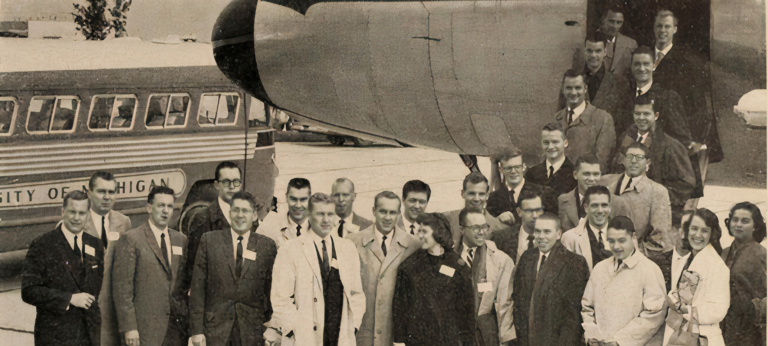
Not only has the student experience grown in terms of professional opportunities but it has also expanded in terms of its geographic reach. As far back as 1957, Rotman Commerce students were exploring further afield than Canada. In that year, the Commerce Club (a student group) began organizing an exchange program between the University of Toronto and the University of Michigan.
Rob Michaud, Associate Director, Academic Services – Program Administration“Rotman Commerce has always placed great emphasis on fostering cross-cultural competencies and supporting a diverse international student body, ensuring that all students benefit from a rich, global perspective. These values are reflected in the curriculum, new educational opportunities and programs, and our incredibly talented faculty and instructors who are leading the way.”
Since then, the curriculum has expanded with an enhanced focus on international and global themes along with experiential learning opportunities which have included a weeklong field trip to Istanbul, Turkey as part of RSM491H – Global Capital Markets. More recently, a select number of students have had the opportunity to join an international trade mission with a Canadian company entering a foreign market in Barcelona, Spain, and to travel with a team of MBA students to the Mobile World Congress to observe the proceedings as part of a course on Business in a Global Economy. This, along with Summer Abroad courses in various regions of the world, can be complemented by courses such as Leading Across Differences which expand intercultural knowledge.
Kaki Narh Blackwood, Associate Director, Academic Services – Academic Advising and Student Success“The opportunities that are available through the [academic focuses] Managing in Diverse Economies and International Business , [as well as] international exchanges, give students access to the cross-cultural competencies that are necessary to build a better world for themselves and for future generations.”
Diversity
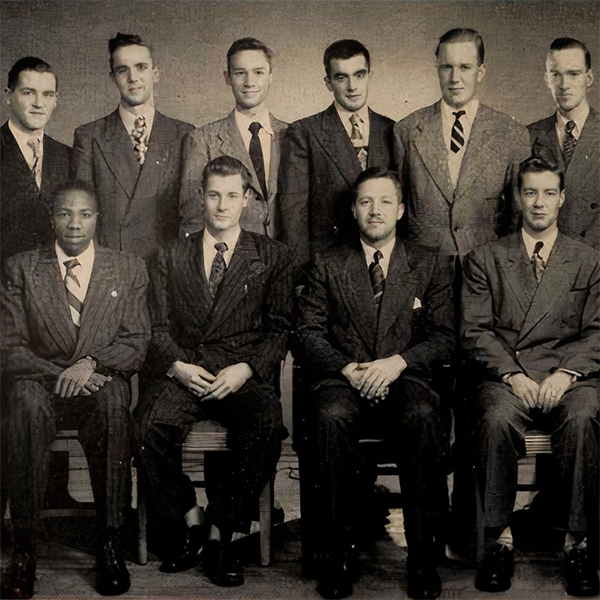
The expanded geographic range of students’ learning experiences has been accompanied by an increased presence of international students, bringing varied perspectives and mirroring the increased internationalization of the Canadian workplace.
Kaki Narh Blackwood, Associate Director, Academic Services – Academic Advising and Student Success“…The internationalization of our student population has been integral in re-examining and changing the way that we interrogate our curriculum and our program, and especially in the way that we think and interact with all members of the RC community. Cross-cultural communication and learning is so important in how we think and move in the world, and this is not just from the business perspective, but from a human one.”
Striving for inclusivity for all of RC’s students regardless of where they hail from, the program has long been invested in equal opportunity through programs, events, scholarships and student groups. The first Women in Commerce Club was started in 1930, opening doors for more future innovators. Started in 2003, the RC Pride Alliance gives students affiliated with the LGBTQ+ community a chance to thrive in a like-minded community. The Black Career Conference, which first ran in 2019, gives an opportunity for Black students and working professionals to connect. Co-organized by the student group Black Rotman Commerce, the series of events is attended by hundreds of students each year. EDIA (equity, diversity, inclusion and accessibility) is an ongoing priority at Rotman Commerce because there is much more to be done in this area.
Community

While the program has evolved in terms of its business curriculum and professional preparation, globalization and diversity, one aspect of RC that has stayed consistent all these years is the spirit of the community. This has been foundational in the successes the students have achieved within the program.
A recent advancement in that direction has been the establishment of the RC House System, which organizes social, active and educational events for RC students, helping them bond across the years. Each RC student belongs to one of the five houses (Bedford, Devonshire, Galbraith, Harbord or Madison) and, similarly to the Hogwarts Houses in the Harry Potter universe, gains points for their house by attending events.
Students can also affiliate themselves with others through their interests, be they career-related or personal. Over 25 student-led groups welcome students for their events and mentorship programs throughout the school year and summer. The students create their own opportunities to cultivate learning environments for a variety of topics including accounting (Rotman Commerce Accounting Society), arts (Rotman Commerce Arts Group), finance (Rotman Commerce Finance Association), global affairs (Rotman Commerce International Business Association) and beyond.
First-Year Learning Communities and the recently added Second-Year Learning Communities support students by introducing them to campus resources, helping them connect to other students, and facilitating skills development–all in a student-led atmosphere.
Mentorship
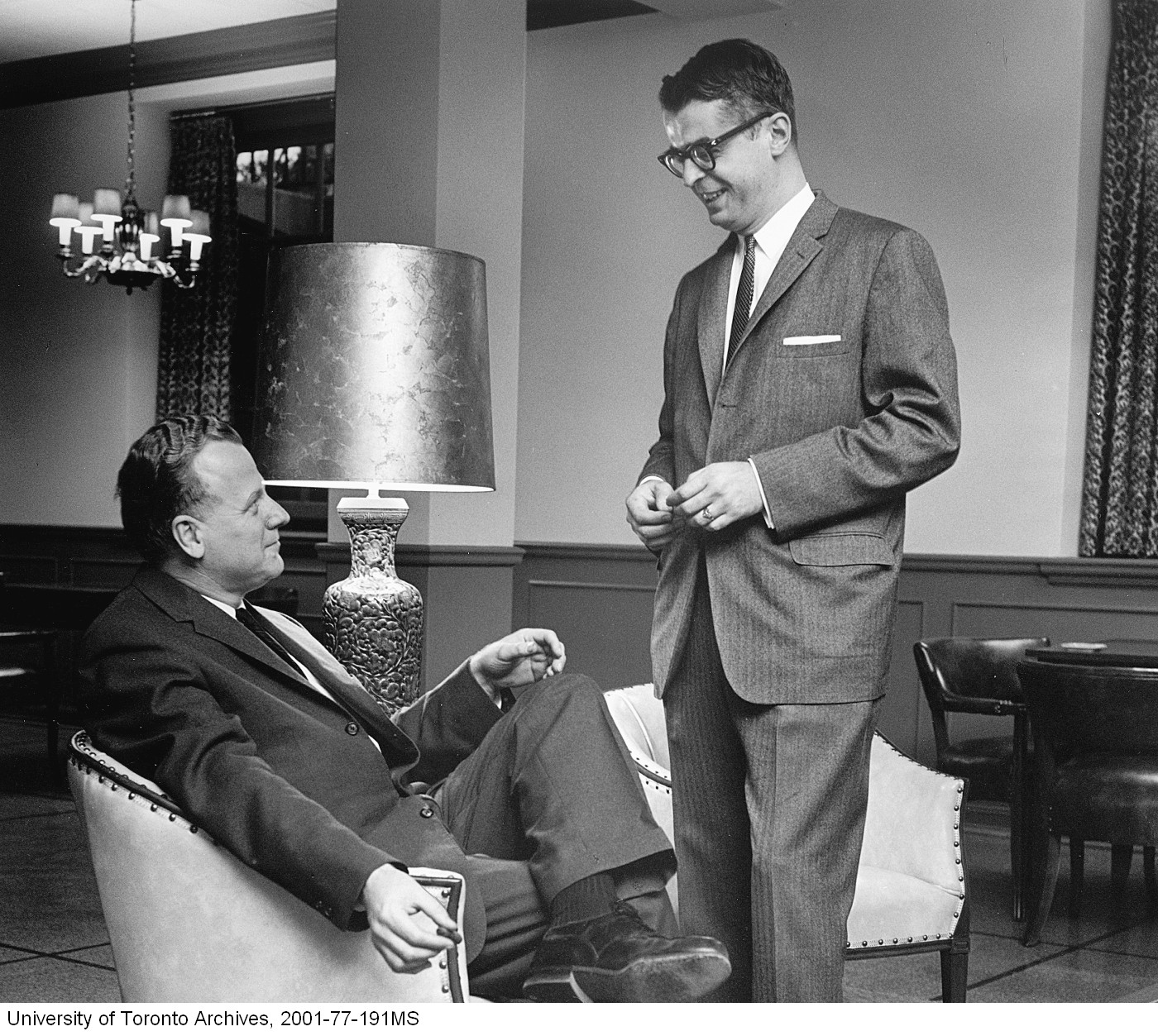
In addition to structured mentorship opportunities provided by Career Peers, Academic Peers and student groups, RC students have consistently supported each other through informal mentorship, passing on the knowledge of the upper years to younger students.
“…Even more important [than the changing curriculum and the changes in technology] has been the enduring constancy of BCom students’ resiliency and their focus on being honourable,” notes the Rotman School of Management’s Professor Joel Amernic.
Boris Tsimerinov (B.Com 2004; GPLLM 2016) is a Rotman Commerce graduate and now a mentor. He reflects on his experiences and motivations: “I feel a strong connection and relationship with RC due to amazing memories created with fellow students when in the program, the world class education I received and the strong supportive ties among the alumni community. The RC-affiliated volunteer experiences are a “win-win-win proposition”. Volunteers meet other active alumni. Students learn from the alumni and may get access to opportunities. The program improves on its already stellar reputation which then transfers onto all involved; and, supports both groups in their networking.”
Student Alina Guo (BCom ‘26) benefitted from aspects of connection that Rotman Commerce made possible on both sides of the mentorship equation: “At RC I got to meet a lot of great upper-years like my director of Corporate Relations at RC Consulting Association and my FLC Peer Mentor, who helped me find the different careers I’m interested in and opportunities that are fit for me. Your mentors think about you and after you’ve had conversations with them, they let you know of opportunities that might be great for you – it’s great to have a community that really cares about each other. Here you also have a great opportunity to become someone’s mentor by being an FLC Mentor, Orientation Leader, etc. And when your mentees come back to you after a while and tell you about all the great things they’ve done, it’s a truly inspiring experience – you feel really grateful to be part of someone’s journey.”
At the heart of it all

At Rotman Commerce, a century of keeping pace with change in its educational offerings and connecting a diverse population to opportunity reflects the commitment of the organization to student success. Of course, there is always more to be done. But it’s not only the program administration which embodies this. Just like the saying “It takes a village to raise a child”, it could equally well be stated that “It takes an engaged community to produce a well-rounded Rotman Commerce graduate…someone who is ready for anything.”
By Raisa Harusova (BCom ’26)
